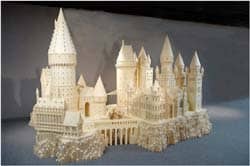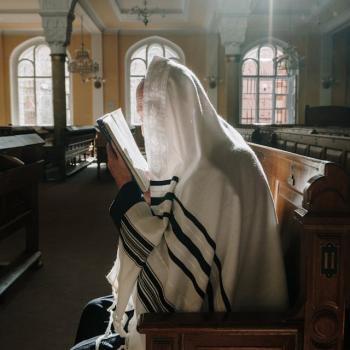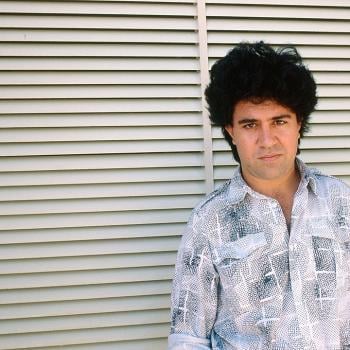There is a small amount of discussion in the Talmud of human souls coming back from the dead, essentially the same thing as ghosts. But, unlike in the Harry Potter books, "ghosts" in Talmudic stories are there to carry out some purpose. Some return to pass on divine messages. In one such story, two ghosts are talking on Rosh Hashanah about what was decreed in heaven for the upcoming year, and a man overhears them. He proceeds to schedule his farming to be successful in the year's weather patterns, benefiting from the ghosts' conversation.
Are there magical creatures in Judaism? If so, do they have rights?
You're referring to the recurring subplot in the Harry Potter books in which Harry's friend Hermione argues that magical creatures called "house elves" should have the same rights as wizards.
There are certainly stories in the Bible about magical creatures, such as the snake in the story of creation and the talking donkey belonging to the prophet Baalam. When Baalam is beating his donkey, an angel tells him to stop. This sends a strong message against the abuse of creatures, magical or not. But the Torah does allow us to do things to animals if it's in keeping with the animal's purpose in the world. For example, we can't hit animals out of anger but can hit a dog as part of its training. So Hermione might disagree with some of the things the Torah allows.
What does Judaism have to say about mudbloods, the derogatory term Rowling's characters use for those in the magical world who are not pure-blood wizards and have at least one human parent?
The whole debate through the Harry Potter series is, to phrase it in a Jewish way, whether it's important or not to have good lineage. Many people judge others by their family background but what I found is that Jewish thought tells us greatness can come from anywhere. David came out of a very questionable family history, and yet he rose to become king. In fact, the 16th-century rabbi known as the Maharal of Prague wrote that Jewish royalty needs to come from questionable lineage in order to demonstrate its ability to overcome obstacles.
Rowling's first Harry Potter book revolves around a sorcerer's stone, said to have been forged by Nicholas Flamel, a great alchemist. I always imagined that Rowling made Flamel up, but I see in your book this isn't so.
The legend of Nicholas Flamel is also mentioned in The DaVinci Code. On the Internet you can find copies of the Testament of Nicholas Flamel, which alchemy fans say he wrote himself. In fact, in this testament he describes learning his alchemy from a book of wisdom of "Abraham the Jew." We have no idea what that book was, and I don't mean to promote belief in alchemy or say that Nicholas Flamel even existed, but the Bible discusses Abraham teaching mystical ideas to his children, then sending them "east." Regardless of whether Nicholas Flamel existed, the stories that are told are consistent with the idea that the source of their mysticism comes from Jewish wisdom.
In the fourth book, Harry Potter and the Goblet of Fire, the evil wizard Voldemort uses dark magic to create a new body for himself. Has this ever been heard of in Judaism?
I compare this to the stories of the Maharal of Prague's golem -- a kind of Jewish mystical robot created by humans, in this case, to protect Jews from anti-Semites. Kabbalistic literature and the Talmud do talk about sages bringing new bodies to life. But these are always without souls because souls can only be created by God. Golems don't have souls. Which is why they can't speak; intelligent speech requires a soul.
Harry is magically protected by his mother's love. Hogwarts is also protected by magic. Does Judaism offer such a concept of protection?
There are several examples in the Bible of good deeds rendering a protective and spiritual energy. For example, Joseph in Egypt resisted temptation, which gave the Jews the spiritual energy they needed to survive 400 years of slavery in Egypt. As another example, folklore says that the location of the temple in Judaism was chosen because of love between two brothers at that location. I couldn't find an example where protection is on the person, only on places, but it's a close analogy.
 Is there a counterpart to the evil wizard Voldemort in Jewish literature?
Is there a counterpart to the evil wizard Voldemort in Jewish literature?





